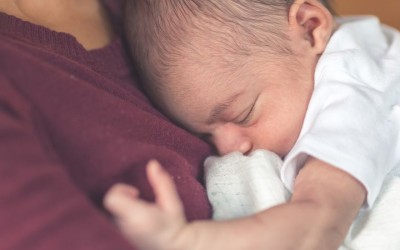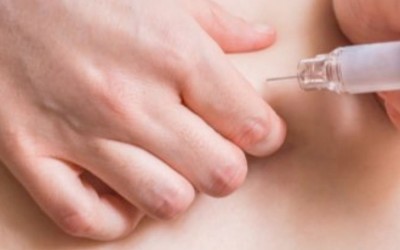
What do we know? Creating an effective understanding of nutrition and preeclampsia
Is there a connection between maternal diet and preeclampsia? The PRECISE Network research team and I recently completed an evidence review to compile information on maternal nutritional factors that may be associated with the development of preeclampsia. Nutrition has important roles to play during pregnancy and placenta development. Nutrition is frequently studied by preeclampsia researchers because we know it plays a role in how our body manages inflammation, oxidative stress, and blood pressure, which are components in the development of preeclampsia.
Preeclampsia is a complex condition with a number of genetic, clinical, social, and environmental risk factors. Nutritional risk factors interact with all of these other risk factors. This means that good nutrition does not guarantee disease prevention. Developing preeclampsia is not solely due to eating unhealthy foods either. While researchers have found several maternal nutritional factors that may increase or decrease the risk of developing preeclampsia, there is a lot of variation depending on each person’s background.
The research we reviewed showed that some dietary factors, especially calcium, Vitamin D, iron, and overall maternal diet, appear to affect preeclampsia rates. Others appear to have very little impact.
Calcium:
Does calcium supplementation help prevent preeclampsia? Four decades of research has shown that among women with low dietary calcium intake, calcium supplementation can reduce the risk of developing preeclampsia by half. Calcium from the mother’s diet helps the developing baby’s bones to form. Particularly in the second half of pregnancy, there is a heavy draw on the mother’s calcium stores to help her baby grow. Low blood calcium levels trigger the release of parathyroid hormone, which helps the body control its calcium levels. More parathyroid hormone causes bones to release more calcium into the blood and vascular smooth muscle cells, which form a major part of blood artery walls. This leads to blood vessels constricting and high blood pressure.
The World Health Organization recommends calcium supplements for pregnant women with low calcium intakes to help reduce the risk of preeclampsia. It’s important to note, however, that calcium supplementation has not been proven for pregnant women who already get plenty of calcium in their diet.
Vitamin D:
Adequate vitamin D can also help people get enough calcium. The active hormonal form of vitamin D, calcitriol, increases calcium absorption from the intestines. Additionally, vitamin D has important roles in placenta development and regulating inflammation, which are both important in the development of preeclampsia. Maternal vitamin D deficiency was associated with double the odds of developing preeclampsia (OR 2.11, 95% confidence interval 1.52-2.94), while vitamin D supplementation was associated with 38% reduced risk of developing preeclampsia (RR 0.62, 95% confidence interval 0.43-0.91).
Your healthcare provider may look at your vitamin D level during your prenatal bloodwork, whether or not you are at risk for preeclampsia. They may suggest a supplement if the levels are low to improve overall pregnancy health.
Iron (and the role of anemia):
While there seems to be a connection between iron levels and preeclampsia, the evidence is not straightforward. Researchers are still trying to understand the relationship. Adequate iron is critical in pregnancy, but some forms of iron can harm the body’s cells and the lining of the blood vessels. Iron is a part of hemoglobin, which is required for red blood cells to carry oxygen. Both low and high levels of hemoglobin have been connected with higher rates of preeclampsia. Free iron in blood reacts with other unstable molecules containing oxygen to initiate cellular damage in the lining of blood vessels, which is known as endothelial damage. Pregnant patients with preeclampsia tend to show more endothelial damage than pregnant patients without preeclampsia. Those with preeclampsia often have higher levels of iron in their blood than pregnant women without preeclampsia. It is unclear whether these high levels are part of the development of preeclampsia, the result of the disease, or both.
It is important to note that getting enough iron in pregnancy is extremely important to prevent anemia. Anemia has recently been shown to increase risk of developing preeclampsia. Black moms are also more likely to have undiagnosed anemia. This is generally part of your usual pregnancy bloodwork panel, so speak with your provider if you have questions.
Other nutrients (Vitamin C, Vitamin E, Folic Acid, Vitamin B12, Magnesium, Omega-3, reduced salt, protein):
Other nutritional factors have mixed findings, which leads researchers to be less certain about their results. These include folic acid and vitamin B12, which have complicated chemical pathways in the body and potential genetic risk factors that adds to the complexity. (See our article on “An Updated Understanding of Preeclampsia Risk Factors”) Almost none of trials with magnesium and vitamin C and/or Vitamin E supplementation found significant effects on reducing preeclampsia rates, which may only be beneficial among pregnant women with very low levels to begin with. The only study in a review of magnesium supplementation trials with an independent beneficial effect was among women with a clinically low level of magnesium and a recent large Chinese study found that vitamin E increase during pregnancy was only linked with reduced preeclampsia rates among women with very low levels at baseline. Reviews did not find that advice to reduce salt intake or fish oil (omega-3) supplementation reduced rates of preeclampsia. There is no evidence that protein-energy supplementation reduces risk of developing preeclampsia, which suggests that high-calorie, high-protein diets such as the Brewer’s Pregnancy Diet may not be useful in preventing preeclampsia.
The role of a balanced diet:
The findings that too much and too little iron are not good for maternal health points to the importance of balance, which fits with promising research that healthy maternal diets with lots of fruits, vegetables, whole-grain foods, fish, and chicken was associated with 22% reduced odds of developing preeclampsia (OR 0.78, 95% confidence interval 0.70-0.86). These types of meals can help pregnant women get enough vitamins and minerals, as well as have protective benefits on cardiovascular and metabolic systems, which are stressed during pregnancy. In contrast, maternal diets high in ultra-processed foods and added sugars increased the odds of developing preeclampsia by 28% (OR 1.28, 95% confidence interval 1.15-1.42).
Health researchers and care providers sometimes talk about diet as a “modifiable risk factor,” meaning that it is something that can be changed to promote health. This is in comparison to other factors that cannot be changed, such as genetic risk factors, for example. This is why there can be a lot of excitement around the food that pregnant women eat – including feelings of self-blame. Patients may wonder if their diet “caused” their preeclampsia, but we have to keep in mind that nutrition is complex. Each body processes nutrients differently based on genetic, clinical, and environmental factors. Meals and diet can also be hard to change due to a number of social factors like affordability, family contexts, access to grocery stores, and others.
As we mentioned at the beginning, preeclampsia is a complex condition with a number of genetic, clinical, social and environmental risk factors. Nutritional risk factors interact with all of these other risk factors.
There is no proven way to prevent preeclampsia. Even healthy patients with no known risk factors may develop preeclampsia. Nevertheless, pregnancy is a great time to focus on overall wellness and modifiable factors like nutrition that promote good heart health. Overall, eating meals with lots of fruits and vegetables, lean protein and whole grains seems linked with lower rates of preeclampsia, while nutritional deficiencies, especially low calcium, may increase the risk. Good nutrition is important for a healthy pregnancy beyond its potential to reduce risk of developing preeclampsia. If you have any concerns about nutritional deficiencies during pregnancy and healthy eating, talk to your health care provider on what is best for you.
Further reading from preeclampsia.org:
Could Vitamin B12 deficiency and preeclampsia/HELLP syndrome be related?
Do your Vitamin D levels prior to pregnancy affect your risk for preeclampsia?
Ask An Expert: Celiac disease and preeclampsia
Ask An Expert: Thyroid antibodies and preeclampsia
About the Author
 Maggie Woo Kinshella is a Research Coordinator and PhD Candidate in Women+ and Child Health Sciences at the Department of Obstetrics and Gynaecology, University of British Colombia. Born and raised in Vancouver, Maggie obtained a MA in Cultural Medical Anthropology and a BA in Psychology and Anthropology from the University of British Colombia. Her doctoral research examines maternal diet and pregnancy outcomes in low- and middle-income countries, where 99% of global maternal deaths due to preeclampsia and other complications occur.
Maggie Woo Kinshella is a Research Coordinator and PhD Candidate in Women+ and Child Health Sciences at the Department of Obstetrics and Gynaecology, University of British Colombia. Born and raised in Vancouver, Maggie obtained a MA in Cultural Medical Anthropology and a BA in Psychology and Anthropology from the University of British Colombia. Her doctoral research examines maternal diet and pregnancy outcomes in low- and middle-income countries, where 99% of global maternal deaths due to preeclampsia and other complications occur.
This article is for educational purposes. The views and opinions expressed in this article are those of the guest author and do not necessarily reflect the views or positions of any entities they represent.
Related Articles

Ánimo y cuídate: la preeclampsia puede estar asociada con enfermedades cardíacas y accidentes cerebrovasculares más adelante en la vida Descargue nuestra hoja informativa

Eclampsia is a very serious complication of preeclampsia characterized by one or more seizures during pregnancy or in the postpartum period.

Your story is needed to improve outcomes for moms like you. Add your voice to critical preeclampsia research to ensure that every story is heard.

La preeclampsia, en todas sus formas, puede requerir muchos análisis, tanto durante como después del embarazo. ¿Alguna vez se preguntó por qué el proveedor de atención médica le solicita tantos anális...

Melbourne, FL – September 17 , 2024 – The Preeclampsia Foundation, in partnership with the International Society for the Study of Hypertension in Pregnancy (ISSHP) and Society for Ma...

Resultados de varios estudios apoyan la hipótesis de que el estrés causado por un embarazo y parto traumáticos puede en muchas ocasiones anular la habilidad de salir adelante emoc...

What you’ll learn in this article: Many risk factors contribute to an individual’s chance of getting preeclampsia. These risk factors may be genetic, physical, environmental, and even s...

Question: Progesterone supplementation - first trimester and beyond - can it help the vascular constriction by keeping the smooth muscle relaxed (17HP shots), and is it associated with early supplemen...

On April 16, a briefing for U.S. Congressional staff offered insights about how maternity care is being provided in the midst of the COVID pandemic. We joined a number of maternal health organizations...

